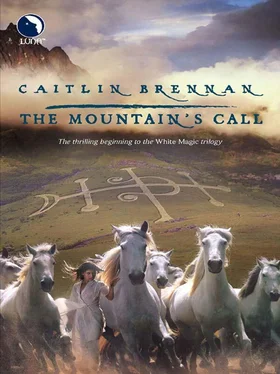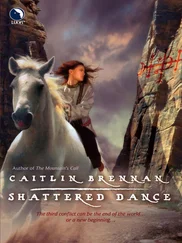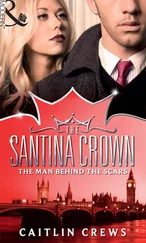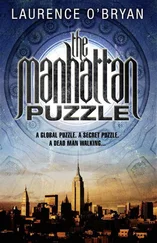“I’ll cure her,” said Morag. Her tone was grim. “You go in the morning, husband, and talk to Aengus. She likes that son of his well enough. There’s time to make it a double wedding.”
“I’m not sure—” said Titus.
“Do it,” Morag said with a snap like a door shutting.
That was all they said that night. Valeria lay very still, trying not to touch either Caia or the wall. Caia would not be pleased at all, not after she had bragged to everyone about being the first of all four sisters to marry. She was a year younger than Valeria and the beauty of the family. Their father had not had to go begging for a husband for that one. Wellin Smith had asked for her.
Aengus’ son Donn was unlikely to refuse Titus’ eldest daughter. He had been trailing after Valeria since they were both in short tunics. He had an attractive face and decent conversation, and a little magic, which was useful in his father’s mill. He could offer his wife a good inheritance and a comfortable living, even a maid if she wanted one.
It was a good match. Valeria should be happy. Her mother would cure her of these dreams and fancies. She would marry a man she rather liked, give him children and continue with her education in herb-healing and earth magic. When the time came, she would inherit her mother’s place in the village, and be a wisewoman.
That was the life she was born to. It was better than most young women could hope for.
She was ill, that was all, as her mother had said. Because it was spring and she was coming to her sixteenth summer, and because she had listened hungrily all her life to stories of the Call and the white gods and the school on the Mountain, she had deluded herself into thinking that this bout of brain fever was something more. That was why she was dreaming in broad daylight and stumbling over her own feet, and feeling ever more strongly that she should take whatever she could carry and run away. She could not possibly be hearing the Call that had never come to a woman in all the years that it had been ringing through the planes of the aether.
Valeria slid from doubt and darkness into a dream of white horses galloping in a field under the white teeth of mountains. They were all mares with heavy bellies, and foals running beside them. The young ones were dark, black or brown, with the white of adulthood shining through.
They ran in wide sweeps across the green field. The swoops and curves made her think of a flock of birds in flight. Augurs could read omens in the passage of birds, but these white horses could shape the future. They could make it happen. They were the moon, and time was the tide.
A voice was speaking. She could not see who spoke, or tell if it was a man’s voice or a woman’s. It came up out of the earth and down from the air. “Look,” it said. “See. Understand. There is a prophecy—remember it. One will come of the pure line, true child of First Stallion and Queen Mare. That one will seal the bond of soul and spirit with a child of man. Together they shall be both the salvation and destruction of the people.”
Words welled up, a flood of questions, but there was no one to ask. She could only watch in silence.
The mares and foals circled the field in a graceful arc and leaped into the sky, spinning away like a swirl of snow. Down on the field, a single pale shape stood motionless. The solid quarters and the heavy crest marked him a stallion, even before he turned and she recognized him. She had dreamed him once already.
He was young, dappled with silver like the moon. As massive as he was, he was somewhat soft around the edges. He was beautiful and perfect but still, somehow, unfinished. Come, he said as he had before. Come to me.
She woke in the dark before dawn, with the dream slipping away before she could grasp it. She was standing in the open air. The sky was heavy with rain, but it had not yet begun to fall. She was dressed in her brothers’ hand-me-downs. They were faded and much mended, but they were warm. There was a weight on her back.
She remembered as if it had been part of her dream how she had slipped out of bed without disturbing her sisters. She had found the old legionary pack that her eldest brother Rodry had brought home on his last leave, and filled it with food and clothing, enough for a week and more. When she woke, she was filling a water bottle in the stream that ran underneath the dairy house.
Her face was turned toward the Mountain. It was too far away to see, but she could feel it. When she turned in the wrong direction, her skin itched and quivered.
The bottle was full. She thrust the stopper in and hung it from her belt. The sky was lightening just a little. She set off down the path from her father’s farm to the northward road.
Her mother was waiting where the path joined the road. Valeria’s feet would have carried her on past, but Morag stood in the way. When Valeria sidestepped, Morag was there. “No,” said her mother. “You will not.”
“I have to,” Valeria said.
“You will not,” said Morag. She gripped Valeria’s wrists and spoke a Word.
The cords of the binding spell were invisible, but they were strong. Valeria could not move her numbed lips to speak the counterspell. Spellbound and helpless, she staggered behind her mother. Every step she took away from the Mountain was a nightmare of discomfort, but she could do nothing about it. Her mother’s magic was too strong.
The root cellar smelled of earth and damp and the strings of garlic that hung from the beams. Barrels of turnips and beets and potatoes lined the walls. There was one window high up, barely big enough for a cat to climb through. The trapdoor in the ceiling was securely bolted on the other side.
It was not terribly uncomfortable, for a prison. Valeria had a feather bed to lie on. She had a firepot and a rack of lamps with more than enough oil to keep them burning. Morag had left her with the herbal and the book of earth spells, but a binding kept her from working any spell that might help her escape.
“I’ll let you out on your wedding day,” Morag had said when she shut Valeria in the cellar. “Between now and then, you will do your lessons and ponder your future, and I will see that you get over this sickness.”
“It’s not a sickness,” Valeria said through clenched teeth. “You know what it is.”
“I know what you think it is. You know it’s impossible. You are the only one of my daughters who was born with magic. You will have ample opportunity to develop and use it—but you will do it here in Imbria where you belong.”
“I don’t belong here,” Valeria said. “I belong on the Mountain.”
“You do not,” said Morag. “No woman does. And so they will tell you if you keep on trying to answer their Call. They’ll break your heart. They’ll laugh in your face and send you away. I’m sparing you that, daughter. Someday, Sun and Moon willing, you’ll learn to forgive me.”
That would never happen. Valeria had come out of her dream-ridden fog into a trammeled fury. She was awake now, and her mind was as clear as it could be.
She remembered when she had first heard the story, as vivid as if it had happened this morning. She could see the market in the bright sunlight, with its booths of vegetables and fruit, heaped greens and sides of mutton and beef and strings of fish.
A stranger lounged on the bench outside Lemmer’s wineshop. “Oh, aye,” he said in an odd rolling accent. “The horse magicians send out a Call every spring, just before the passes open in the mountains. It’s meant for boys who are almost men, or men who are still mostly boys. Fourteen, fifteen, sixteen summers old. Never younger. Only rarely older. It binds them and compels them to go to the Mountain.”
Valeria was much younger then, not yet in skirts. Strangers took her for a boy, as lanky and gawky as she was. “Only boys?” she asked this stranger. “No girls?”
Читать дальше












